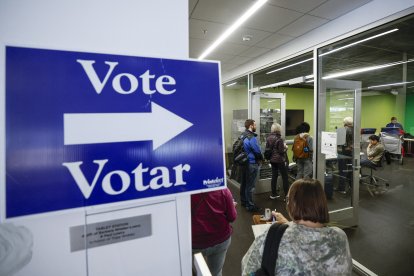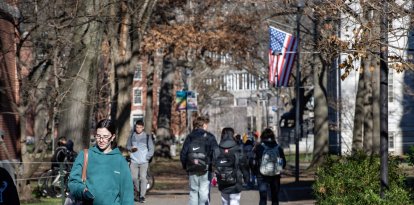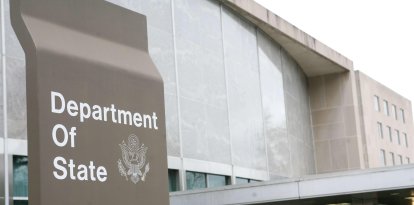ANALYSIS.
Democratic jitters: new front against the SAVE Act without its passage in the House yet to be scheduled
A report by the Brennan Center For Justice charges that more than 21 million citizens would have their right to vote infringed by the new requirements, while Republicans call it "absurd armchair profiteering."

Voters line up to vote in Wisconsin
The rapidity with which Donald Trump and his team are proceeding to dismantle the Deep State and end some of the Democratic electoral shenanigans has put the blue party and activist groups close to them in sheer panic mode. Among all the open fronts, one of the ones that most terrifies left-wing sympathizers is thepossibility that the SAVE Act to make voter ID mandatory will go forward. In this line, the Brennan Center for Justice published a report saying that this law would leave out of the electoral system 21.3 million voters, something strongly denied from the Republican bench.
The SAFE Act was introduced last term by a group of Republican lawmakers led by Chip Roy. The ultimate aim was to prevent non-citizens from casting their vote in federal elections, as has happened on past occasions according to several allegations. Last November, Trump was defeated precisely in 17 of the 19 states where voter ID is not mandatory, and whose ballot security guarantees were hotly contested the campaign by conservatives.
"the SAVE Act would undermine voter registration for all Americans"
According to Brennan Center, "the SAVE Act would undermine voter registration for all Americans," and therefore considers that "Congress should reject this undemocratic and ill-conceived bill." To justify this forceful statement, the authors of the report denounce that more than 21 million American citizens lack the documents deemed eligible for identification under the proposed law. The number of affected people is based on surveys performed on the subject, although the Brennan Center considers that the real number would be much higher.
That is, more than 9% of voters would not have "a birth certificate, a passport, or another proof of citizenship," which they would be required to present "each time they register or re-register to vote." Therefore, the authors believe that "If enacted [The Save Act], it would devastate voter registration while disenfranchising tens of millions of eligible American citizens."
Lament for the end of mail-in registration or voter registration drives
The study further notes as a drama that "many have not realized how broadly the law applies: the requirement to submit the documents is not limited to new registrations, but applies to all 'voter registration applications, which in many jurisdictions includes re-registrations and address changes. And tens of millions of Americans register or re-register between each federal election."
The report, which accurately picks up on classic Democratic politicians' excuses for avoiding voter ID, also laments that "the bill would functionally eliminate mail-in registration by requiring voters who register by mail to present citizenship documents 'in person' to an election official before the registration deadline. It would also abolish many or all voter registration drives and online voter registration systems, which are normally treated like mail-in registration. (In addition, the bill does not provide for copies or electronic records of citizenship documents.) And it would seriously obstruct automatic voter registration, since many such transactions do not occur in person while someone is carrying citizenship documents."
Chip Roy: "Absurd armchair speculation."
"The legislation establishes a myriad of ways for people to prove their citizenship and explicitly directs states to establish a process for people to register to vote if there are discrepancies in their proof of citizenship documents due to something like a name change."
RECOMMENDATION






















